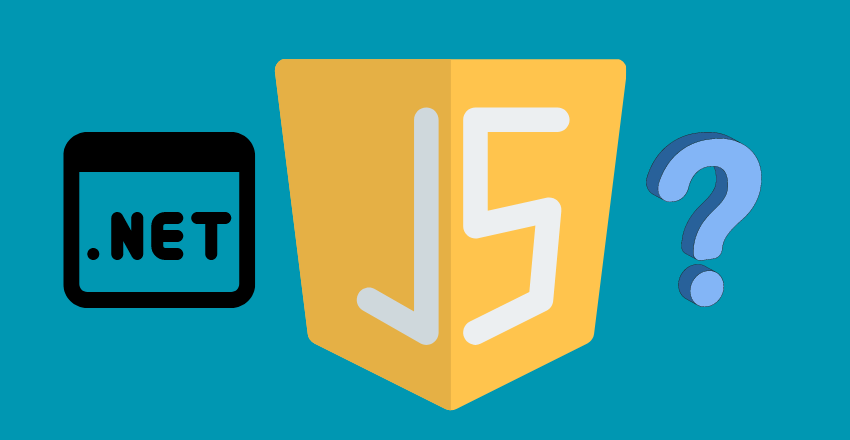
JavaScript has become an integral part of web development, and with its growing popularity, more and more developers are seeking to learn it. However, for .NET developers, the question arises: do they really need to know JavaScript?
The answer is yes! While .NET is a powerful framework for building web applications, it has its limitations. By combining .NET with JavaScript, developers can take advantage of both technologies to create more dynamic and robust applications.
Whether you’re working on the front-end or back-end of a web application, having a solid understanding of JavaScript skills can be invaluable. By integrating JavaScript into your .NET coding projects, you can enhance the user experience, increase functionality, and even optimize performance.
Key Takeaways
- .NET developers can benefit greatly from learning JavaScript.
- Combining JavaScript with .NET allows for more dynamic and robust web applications.
- JavaScript skills are valuable for both front-end and back-end development with .NET.
The Role of JavaScript in .NET Development
JavaScript has steadily gained importance in modern web development, and its relevance extends beyond just web design. In the context of .NET development, JavaScript skills are becoming increasingly vital. .NET developers who are proficient in JavaScript can optimize their projects and enhance their efficiency by integrating the scripting language.
JavaScript can be utilized in a variety of ways within .NET projects, from front-end development to server-side programming. By combining .NET and JavaScript expertise, developers can create dynamic and interactive applications that are more flexible and better respond to user actions.
One of the primary benefits of JavaScript for .NET developers is that it allows for easier front-end development. JavaScript frameworks such as AngularJS, React, and Vue.js can be used to create complex user interfaces, enhancing the visual experience while simplifying the development process. This not only saves time but also improves the overall quality of the user experience.
The Benefits of Combining .NET and JavaScript Expertise
Another significant advantage of incorporating JavaScript into .NET development is that it allows for greater project flexibility. .NET developers who have JavaScript skills can adapt quickly and easily to changing project requirements, making them more valuable team members.
Furthermore, JavaScript expertise can enable .NET developers to work more effectively with front-end developers who specialize in JavaScript, improving team collaboration and ensuring that projects are completed to a high standard. By expanding their skillset to include JavaScript, .NET developers can open themselves up to new opportunities and advance their careers to new heights.
JavaScript Frameworks for .NET Development
JavaScript frameworks are an essential tool for .NET developers looking to enhance their coding projects. Here are some of the most popular JavaScript frameworks that can be utilized by .NET developers to expand their skillset:
| Framework Name | Description |
|---|---|
| React | A JavaScript library for building user interfaces, React can seamlessly integrate with .NET. |
| Angular | Powered by Google, Angular is a comprehensive framework that can be used to build everything from small components to full-scale applications. |
| Vue.js | A lightweight and versatile framework, Vue.js is known for its ease of use and flexibility in creating web interfaces. |
These frameworks are designed to work in conjunction with .NET, complementing the language to create more dynamic and efficient coding projects. By mastering these frameworks, .NET developers can expand their skillset to include client-side web development, giving them a competitive edge in the industry.
Front-End Development with JavaScript and .NET
When it comes to front-end development with .NET, having strong JavaScript skills is a must. JavaScript provides the interactivity and dynamic behavior that users have come to expect from modern websites and applications. Without it, .NET projects risk feeling outdated.
With JavaScript, .NET developers can create more engaging user interfaces, offer real-time updates, and build complex data visualizations. Furthermore, having a solid understanding of JavaScript frameworks like React or Angular can significantly improve a .NET developer’s productivity and efficiency in front-end development tasks.
One of the key benefits of combining .NET and JavaScript skills is the ability to create hybrid mobile applications using frameworks like Cordova or Ionic. These frameworks allow developing mobile apps with a single codebase, reducing development time and effort. Since .NET developers already have experience building back-end APIs, they can focus on developing the front-end using JavaScript.
Moreover, JavaScript knowledge also means that .NET developers can contribute to full-stack development projects where front-end and back-end development are intertwined. By having an understanding of both sides of development, a .NET developer can offer valuable insights and play a more significant role in the project.
In conclusion, front-end development with .NET is heavily reliant on JavaScript skills. By investing time in developing solid JavaScript expertise, .NET developers can take their projects to the next level, improve their output, and participate actively in full-stack development initiatives.
JavaScript Libraries and Plugins for .NET Projects
JavaScript libraries and plugins can significantly enhance a .NET developer’s coding experience by providing ready-made solutions to common development challenges. Utilizing these libraries requires a solid understanding of JavaScript, making it an essential skill for .NET developers. Here are some popular JavaScript libraries and plugins that can be useful for .NET coding projects:
| Library/Plugin | Description |
|---|---|
| jQuery | A fast and lightweight JavaScript library for simplifying HTML document traversing, event handling, and Ajax interactions. |
| React | A JavaScript library for building user interfaces using a component-based approach. |
| Lodash | A JavaScript utility library for working with arrays, strings, and objects, providing functional programming methods and performance enhancements. |
These libraries and plugins can save developers time and effort when building complex features, such as data visualization or interactive user interfaces. Additionally, they can help ensure cross-browser compatibility and address common security concerns.
However, it’s important to note that using pre-built libraries and plugins can also introduce compatibility issues with other components or frameworks, so it’s crucial to thoroughly test and evaluate their integration into any project.
Server-Side JavaScript in .NET
JavaScript is not limited to client-side development, as it can also be utilized for server-side tasks. This opens up new avenues for .NET developers to expand their skillset beyond traditional client-side applications. Here are some popular server-side JavaScript frameworks that .NET developers can use:
| Framework | Description |
|---|---|
| Node.js | One of the most popular server-side JavaScript frameworks that can be used with .NET. It offers great performance and scalability, making it a preferred choice for large-scale applications. |
| Express | Based on Node.js, Express is a minimalist web framework that provides a range of features for building server-side applications with JavaScript. It can be used to build APIs, web applications, and more. |
| Meteor | Another popular server-side JavaScript framework that can be used with .NET. Meteor offers a range of features that can be used to build real-time applications, including database synchronization and a reactive programming model. |
By leveraging server-side JavaScript frameworks, .NET developers can utilize JavaScript to perform a wide range of server-side tasks, such as building APIs, handling database operations, and more. This enables developers to build more flexible and scalable applications that incorporate both .NET and JavaScript expertise.
Benefits of Learning JavaScript for .NET Developers
Expanding your skillset to include JavaScript can bring numerous benefits for .NET developers. Aside from being an in-demand language in the industry, JavaScript skills can greatly enhance your coding projects and provide greater flexibility and opportunities for collaboration.
JavaScript is an essential part of modern front-end development, and having expertise in this area can provide a significant advantage for .NET developers working on web applications. By combining .NET and JavaScript knowledge, you can create dynamic and responsive user interfaces that are both efficient and visually appealing.
Furthermore, the use of JavaScript frameworks and libraries, such as React or Angular, can greatly simplify development and streamline the process. These tools enable developers to create high-quality code more quickly, resulting in faster delivery times and a more efficient workflow.
Another benefit of learning JavaScript for .NET developers is the ability to leverage server-side JavaScript frameworks like Node.js. This expands the range of applications that can be developed using .NET, opening up new possibilities for innovation and development.
By having a diverse skillset that includes both .NET and JavaScript, developers are better equipped to face the challenges of modern software development. This combination provides greater adaptability and the ability to work on a wider range of projects, making you a more valuable asset to any team.
Overall, learning JavaScript skills is a valuable investment for .NET developers, providing a competitive edge in the industry and enabling them to take on new and exciting projects with confidence and proficiency.
Conclusion
In conclusion, the answer to the question “Do .NET developers need to know JavaScript?” is a resounding yes. As we have seen throughout this article, JavaScript plays a crucial role in the development process when combined with .NET, offering benefits such as increased flexibility, improved front-end development, and access to a wide range of libraries and plugins.
By expanding their skillset to include JavaScript, .NET developers can significantly enhance their capabilities, opening up new opportunities for collaboration and project success. Whether you are a seasoned .NET developer or just starting out, learning JavaScript is a valuable investment in your career.
Resources for Learning JavaScript for .NET Developers
For .NET developers looking to expand their skillset to include JavaScript, there are numerous resources available online. Whether you’re a beginner just starting to learn JavaScript or an experienced developer looking to enhance your existing knowledge, these resources will help you on your journey.
1. Codecademy
Codecademy is a great place to start learning JavaScript, as it offers a comprehensive course on the basics of the language. The course is interactive and hands-on, allowing you to apply what you’ve learned in real-time. Additionally, if you’re already familiar with JavaScript, Codecademy offers more advanced courses that cover topics like React and Angular.
2. Udemy
Udemy is another popular option for online learning. It offers a wide range of JavaScript courses for all skill levels, from beginner to advanced. The courses are taught by experts in the field and often include practical examples and exercises to reinforce your learning.
3. JavaScript.info
JavaScript.info is a free online resource for learning JavaScript. It covers all the basics of the language, as well as more advanced topics like object-oriented programming and asynchronous programming. Additionally, the site offers interactive examples and exercises to practice your skills.
4. Pluralsight
Pluralsight is a paid online learning platform that offers comprehensive courses on JavaScript and .NET development. Its courses are designed for developers of all skill levels and cover topics like React, Angular, and Node.js. Pluralsight also offers certifications, so you can showcase your new skills to potential employers.
By utilizing these resources, you’ll be well on your way to becoming proficient in both JavaScript and .NET development. Remember, having a strong foundation in both technologies opens up new opportunities for collaboration and project flexibility.
FAQ
Q: Do .NET developers need to know JavaScript?
A: Yes, JavaScript knowledge is highly beneficial for .NET developers. It allows them to enhance their coding projects, collaborate with front-end developers, and utilize various JavaScript frameworks and libraries.
Q: What is the relevance of JavaScript for .NET developers?
A: JavaScript is relevant for .NET developers as it enables them to create interactive and dynamic web applications. It enhances the user experience and allows for seamless integration with front-end technologies.
Q: What JavaScript skills are important for .NET coding projects?
A: Important JavaScript skills for .NET coding projects include understanding JavaScript syntax, manipulating the Document Object Model (DOM), working with AJAX and APIs, and being familiar with popular JavaScript frameworks and libraries.
Q: What are the benefits of combining .NET and JavaScript expertise?
A: Combining .NET and JavaScript expertise allows developers to create powerful and versatile applications. It enhances their job prospects, provides flexibility in project development, and enables seamless integration between server-side and client-side technologies.
Q: Which JavaScript frameworks can be utilized by .NET developers?
A: Popular JavaScript frameworks that can be utilized by .NET developers include AngularJS, React, and Vue.js. These frameworks provide robust tools and features to enhance the development process.
Q: How does JavaScript contribute to front-end development with .NET?
A: JavaScript plays a crucial role in front-end development when combined with .NET. It allows developers to create interactive user interfaces, handle client-side validation, and enhance overall UX/UI design.
Q: What are some JavaScript libraries and plugins that can be leveraged by .NET developers?
A: Various JavaScript libraries and plugins can be leveraged by .NET developers, such as jQuery, Bootstrap, and Chart.js. These libraries and plugins offer ready-made solutions for common web development tasks.
Q: Are there server-side JavaScript frameworks compatible with .NET?
A: Yes, there are server-side JavaScript frameworks compatible with .NET, such as Node.js and Express.js. These frameworks allow .NET developers to utilize JavaScript beyond traditional client-side applications.
Q: What are the benefits of learning JavaScript for .NET developers?
A: Learning JavaScript provides several benefits for .NET developers. It expands their skillset, opens up new collaboration opportunities, enhances project flexibility, and enables them to create more robust and innovative applications.
Q: Are there any online resources for learning JavaScript for .NET developers?
A: Yes, there are various online resources and learning materials available for .NET developers looking to enhance their JavaScript skills. Websites like Codecademy, Udemy, and JavaScript.com offer comprehensive courses and tutorials specifically tailored for .NET developers.

Jessica is a highly accomplished technical author specializing in scientific computer science. With an illustrious career as a developer and program manager at Accenture and Boston Consulting Group, she has made significant contributions to the successful execution of complex projects.
Jessica’s academic journey led her to CalTech University, where she pursued a degree in Computer Science. At CalTech, she acquired a solid foundation in computer systems, algorithms, and software engineering principles. This rigorous education has equipped her with the analytical prowess to tackle complex challenges and the creative mindset to drive innovation.
As a technical author, Jessica remains committed to staying at the forefront of technological advancements and contributing to the scientific computer science community. Her expertise in .NET C# development, coupled with her experience as a developer and program manager, positions her as a trusted resource for those seeking guidance and best practices. With each publication, Jessica strives to empower readers, spark innovation, and drive the progress of scientific computer science.






